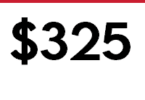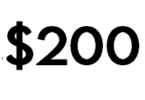(Update 11/1/22: Treasury Direct announced a new annual fixed rate of 2.10% for Series EE bonds, valid November 2022 through April 2023. Right now interest rates are high and you can buy a 20-year treasury note with an interest rate of 4.37% so Series EE Bonds are unattractive in this environment.)
After dipping my toes into US Treasury I Bonds, I began looking into US Treasury Series EE Bonds. These bonds offer a low rate of return, currently just .10%. The main attraction of the EE Bonds is that the treasury guarantees your money to double after 20 years; $100 bond will cash out at $200 after 20 years. If you hold the bond for 19 years, you may end up getting just a few percent return for the entire term. Yet leaving the funds for a full 20 years will yield a full 100% return, doubling your money.
I think of Series EE Bonds as roughly the equivalent of putting your money in 20-year CD which earns 3.5% APY; that’s about the rate which will compound to double your money after 20 years. If you pull out early from EE Bonds you’ll lose almost all of the expected returns.
A few other facts about EE Bonds:
- The rate on EE Bonds updates every 6 months (currently it’s .10%), but the doubling guarantee always remains the same.
- You can break the bond any time after one year, but you’ll lose the last 3 months interest. If you break it after 5 years you won’t lose any interest.
- You can hold the bonds up to 30 years. Some people opt to do so in order to avoid a taxable event after year 20, thus pushing off the taxable event to a more advantageous year.
- You only pay federal tax on the interest. There is no state or local taxes.
- You can buy up to $10,000 in Series EE Bonds per calendar year. This limit runs separate from the $10,000 limit on I Bonds – you can buy $10,000 of each type per calendar year.
Although 3.5% isn’t as good as average stock market returns, it is a nice rate of return for a federally-guaranteed investment. And a lot of people like keeping a certain percentage of their holdings in safer havens in case of market downturns.
Series EE Bonds can certainly make a good gift for a newborn or a teen. I was less sure about buying this myself: true, interest rates from high-yield savings accounts have been near zero for some time now, but there was a time in recent history when it was possible to earn 5%+ on a regular CD. Does it make sense to commit to a 20-year timeframe?
Without knowing what interest rates will be like down the line this may seem unwise. However, someone on the Bogleheads forum brings up a good point: as time from the initial bond purchase passes, so does your rate of return on the EE Bonds. For example, let’s suppose interest rates remain how they are (near zero) for the next 6 years, and then rates on high-yield savings accounts jump up to 4%. It may seem like your EE Bonds aren’t doing well. However, at that point you have just 14 years left on your bond, and the bond return is actually more than 5% since your money will double in just 14 years. Hopefully this makes sense.
Essentially, if we assume some number of years where interest rates remain roughly how they are now, it seems unlikely the EE Bonds won’t outperform what we’d get from a typical savings account. I’m thus considering adding EE Bonds as part of my cash/secure portfolio. (Update: I ultimately decided against it at this stage in my life.)
I’m a newcomer to bonds and decided to write some thoughts; hopefully some people will find this conversation useful. Feel free to add discussion or corrections in the comments below.







The comments about short term interest rates being high right now making these long-term investments unattractive can be reasonably argued, but isn’t always the case since there is a decent chance that interest rates fall well below that amount at some point in the next 20 years, so your total return might end up worse sticking with short-term investments (though it may be worth it for liquidity/optionality, and likely is).
The real proof that this is a bad deal is because 20 year treasury bonds are currently trading with an implied 4.42% yield. You have mark-to-market risk if you want to sell before 20 years, but your total return over the next 20 years if you do not sell would be 4.42%. Ignoring slight differences in cashflow timing and taxes (these EE bonds aren’t taxed until redemption, I presume, while regular Treasury notes will have taxable coupons every 6 months), but the 0.92% higher return plus the option to sell in the interim (albeit at an unknown market price) dominates this option.
A 20-year treasury is taxed every 6 months? I had assumed it’s taxed like a CD at the end of the 20 years
The interest, real or imputed, is taxed annually.
Interesting, so I guess EE Bonds would have a leg-up on that front
Yes, but the compounding of the taxable amount of the coupon is worth a small fraction of the 0.92% yield difference.
Now that 20 year treasuries are around 5.1%, is it making sense to cash out EE bonds bought in the last few years (can cash out after 1 year)? As above anything with 14 or more years left to maturity is earning less than 5.1%…and neglecting the deferred tax, that’s a long way away to know if you can benefit from the educational tax break.
Yes, I cashed out my EEs some time ago. The EEs have some unique features with masking of net worth and tax deferral of interest, but I don’t think that outweighs the much higher interest you can get in the open market. If you want an EE like instrument I would pick up some STRIPS on the secondary market at any major broker.
Can you explain what you mean by the masking of net worth? Is this for figuring student aid, and does it apply to I bonds as well? calwatch
calwatch
Basically, some government programs are net worth dependent. Nursing home Medicaid, property tax postponement, and financial aid are some I can think of off the top of my head. Less relevant when rates are 2-3% than they are at 0.1%. I think EE’s are a bad buy now and if you are playing those games to eek a few more bucks in government benefit you are better off taking the 5% yield available in the market for 20 year STRIPS today.
Is there a single 20 year term in which this bond will beat investing in equities? I don’t think so.
this is such a horrible investment, to lock up your money for 20 years and only getting a 100% return for the entire duration. I dont know why this is even been posted/suggested. Avoid and just buy regular treasury.
Yeah, inflation in the last 20 has been 65%. That $200 isn’t worth $200 by the time you get it.
20 year treasury yield is 4.37%. This wouldn’t be worth it unless you end up in a situation where rates increase significantly sometime in the next 20 years/ you need the money sometime before maturity. Don’t feel like calculating the actual breakeven point there especially since it involves probabilities of various situations… but I personally would favor a treasury ladder/ not locking my money up for 20 years.
Good point, forgot about long-term treasuries. I’ll add a note.
Guaranteed to double in 20 years? That’s a terrible long term option. If your investment horizon is 20 years you’d be much better off with a s&P500 index fund.
The equivalent of EE bond is 20year US treasury, currently at 4.2%. So I don’t think anyone should buy EE bond.
Good point, at current 20-year treasury rates it no longer makes much sense to buy these. Added a note thanks
Yes, even though one could lose principal if he sells the treasury early, if he holds a 20 year treasury to maturity, he is guaranteed 4.2% with no risk of loss. The only scenario any of us is even considering buying EE is to hold to 20 years, so it’s an equivalent comparison and the EE loses heartily.
Considering you can get secondary market treasuries for 4.5% ytm with 6 months to 2 year maturity not worth it
Considering we now having checking/savings accounts that are at 3%, I don’t think the current environment makes this worth the lack of liquidity. There’s also an expected rate hike coming from the fed and my savings/checking accounts have gone up with each hike, so there’s a possibility of 3.5-4% for savings accounts soon.
1 year+ t-bills up to 20 years are all at > 4% right now with all the safety of treasury bonds but ability to sell at anytime on open market. Would suggest this over EE.
IShares also offers ETFs targeted to dates if you don’t want to trade specific notes, again all above 4% yield to maturity.
I just cashed in several Series EE bonds issued back in 1992. Based on the interest rate payout over 30 years, the approximate annual simple interest rate was 10%. My only regret is that I did not buy a much larger amount from 30 years ago.
the 10% figure is extremely misleading and shouldn’t be taken seriously…you got an an average of 4.85% annual return. the s&p in comparison averaged 9.65% per year over the same period. Not bad for a safe play, but not great if you knew your time horizon beforehand…
Yes, the average interest rate is likely much less over that time period. I based my interest calculation on a very simple equation which just took into account the original principal amount and extended that to 30 years. Based on a fixed rate of 5%, the annual interest computed came to a total interest amount which was around 1/2 of what I actually received over 30 years. I would expect the market return in that same period would be higher overall. Between the 2008 subprime financial crisis up to today, the market return increased my 401(k) balance to a very high amount.